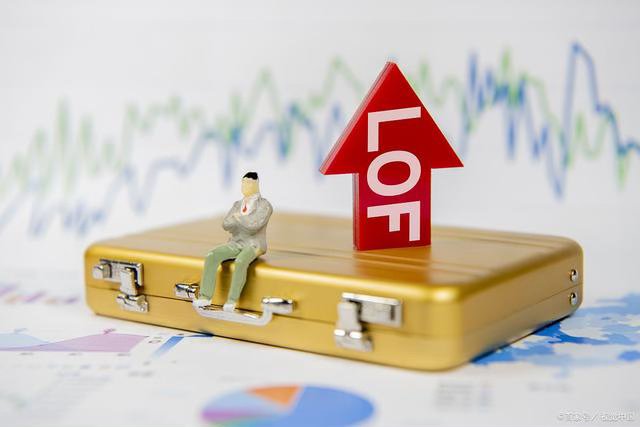How to Transform Your Spending Habits with Credit Card Tracking
Oct 22, 2023 By Susan Kelly
Advertisement
Do you struggle with
managing your money and sticking to a budget? Do you often overspend on your credit cards and
end up paying high interest and fees? Do you want to improve your financial situation and
achieve your goals faster?
If you answered yes to any of these questions, then you may
benefit from credit card tracking. Credit card tracking is the process of monitoring your credit
card transactions, balances, rewards, and payments using a tool or an app. It can help you gain
more control over your spending habits, save money on interest and fees, and optimize your
rewards.
In this article, we will explain what credit card tracking is, how it works,
what are the benefits and risks, and how to do it successfully. We will also share some tips and
best practices to help you transform your spending habits with credit card tracking.
What is credit card tracking?
Credit card tracking is a method of keeping track of your
credit card activity and performance. It involves using a tool or an app that can connect to
your credit card accounts and display various information, such as:
- Your credit card
transactions and categories
- Your credit card balances and limits
- Your credit card
rewards and benefits
- Your credit card payments and due dates
- Your credit card interest
and fees
- Your credit card statements and reports
Credit card tracking can help you
see where your money is going, how much you owe, how much you earn, and how much you pay. It can
also help you compare different credit cards and choose the best one for your needs.
How does credit card tracking work?
Credit card tracking works by linking your credit
card accounts to a tool or an app that can access and analyze your data. There are different
types of tools and apps that can help you with credit card tracking, such as:
-
Spreadsheet: You can create your own spreadsheet to track your credit card activity manually.
You can use formulas and functions to calculate your balances, payments, interest, and rewards.
You can also use charts and graphs to visualize your data. However, this method can be
time-consuming, error-prone, and limited in features.
- Budgeting app: You can use a
budgeting app to track your credit card activity automatically. A budgeting app can sync with
your credit card accounts and categorize your transactions. It can also help you create and
follow a budget, set and track your goals, and manage your bills and subscriptions. Some
examples of budgeting apps are Mint, YNAB, and EveryDollar.
- Credit monitoring app: You can
use a credit monitoring app to track your credit card performance automatically. A credit
monitoring app can sync with your credit card accounts and show your credit score, credit
report, and credit utilization. It can also help you improve your credit health, detect fraud,
and dispute errors. Some examples of credit monitoring apps are Credit Karma, Credit Sesame, and
Experian.
- Rewards tracking app: You can use a rewards tracking app to track your credit
card rewards automatically. A rewards tracking app can sync with your credit card accounts and
show your rewards balances, expiration dates, and redemption options. It can also help you
maximize your rewards, find the best deals, and book travel. Some examples of rewards tracking
apps are AwardWallet, MaxRewards, and The Points Guy.
Depending on your needs and
preferences, you can choose one or more of these tools and apps to help you with credit card
tracking. You can also use them in combination to get the most out of your credit card tracking
experience.
What are the benefits of credit card tracking?
Credit card tracking
can have several benefits, such as:
- Saving money on interest and fees: Credit card
tracking can help you avoid paying unnecessary interest and fees on your credit card debt. By
tracking your balances and payments, you can pay off your debt faster and avoid late fees,
penalty rates, and over-limit fees. You can also track your interest rates and fees and compare
them with other credit cards to find a better deal.
- Improving your credit score and credit
report: Credit card tracking can help you improve your credit score and credit report, which are
important factors in your financial health. By tracking your credit utilization, payment
history, and credit inquiries, you can lower your credit risk and boost your credit score. You
can also track your credit report and dispute any errors or fraud that may affect your credit
score.
- Increasing your financial flexibility and security: Credit card tracking can help
you increase your financial flexibility and security. By tracking your credit limits and
rewards, you can have more options and opportunities to use your credit cards wisely. You can
also track your credit card statements and reports and spot any unauthorized or suspicious
transactions that may indicate fraud or identity theft.
- Achieving your financial goals
faster: Credit card tracking can help you achieve your financial goals faster. By tracking your
spending habits and budget, you can align your credit card usage with your financial goals, such
as saving, investing, or paying off debt. You can also track your rewards and benefits and use
them to fund your goals, such as traveling, shopping, or donating.
What are the risks
of credit card tracking?
Credit card tracking is not without risks, such as:
-
Hurting your privacy and security: Credit card tracking can expose your personal and financial
information to potential hackers or thieves. If you use a tool or an app that requires you to
link your credit card accounts, you may be giving away your login credentials, card numbers, and
other sensitive data. If the tool or app is not secure or trustworthy, your data may be
compromised or misused.
- Losing your rewards and benefits: Credit card tracking can also
affect your rewards and benefits, especially if you use a tool or app that helps you optimize
your rewards. If you switch or cancel your credit cards frequently, you may lose some or all of
your rewards and benefits that you have earned or accumulated. You may also miss out on some
rewards and benefits that are exclusive to certain credit cards or loyalty programs.
-
Missing out on better offers and deals: Credit card tracking can also make you miss out on
better offers and deals that may be available to you from other credit cards or sources. If you
rely too much on a tool or app that recommends you the best credit card for each purchase or
situation, you may not be aware of other options or opportunities that may suit your needs
better. You may also become too loyal or attached to a certain credit card or program and ignore
other alternatives.
How to do credit card tracking successfully?
If you want to
try credit card tracking, here are some steps to follow:
- Choose a tool or an app that
suits your needs: As mentioned earlier, there are different types of tools and apps that can
help you with credit card tracking. You should choose one or more that suit your needs and
preferences, depending on what you want to track and how you want to track it. You should also
consider the features, costs, security, and reviews of each tool or app before using it.
-
Link your credit card accounts and update your information: Once you have chosen a tool or an
app, you need to link your credit card accounts and update your information. You may need to
provide your login credentials, card numbers, and other details to connect your accounts. You
should also update your information regularly, such as your income, expenses, credit score, and
goals, to get the most accurate and relevant data and insights.
- Monitor your credit card
activity and performance: After linking your accounts and updating your information, you can
start monitoring your credit card activity and performance. You can check your transactions,
balances, rewards, payments, interest, fees, statements, and reports. You can also use charts,
graphs, alerts, and notifications to visualize and track your data and trends.
- Compare and
optimize your credit card usage and rewards: Based on your credit card activity and performance,
you can compare and optimize your credit card usage and rewards. You can compare different
credit cards and choose the best one for your needs. You can also optimize your credit card
usage and rewards by following the tips and suggestions from the tool or app, such as using the
right card for each purchase, paying your bills on time and in full, and redeeming your rewards
for the best value.
- Review and adjust your credit card tracking strategy: Finally, you
should review and adjust your credit card tracking strategy periodically. You should evaluate
your credit card tracking results and see if they match your expectations and goals. You should
also adjust your credit card tracking strategy if your needs and preferences change, such as
adding or removing credit cards, changing your budget or goals, or switching to a different tool
or app.
Conclusion
Credit card tracking is a powerful way to transform your
spending habits and improve your financial situation. By using a tool or an app that can help
you monitor, compare, and optimize your credit card activity, performance, and rewards, you can
save money, improve your credit, increase your flexibility, and achieve your goals faster.
However, credit card tracking also comes with some risks and challenges, such as privacy,
security, rewards, and offers. Therefore, you should be careful and responsible when doing
credit card tracking, and only do it if you have a clear purpose, a reliable tool, and a smart
strategy. By doing so, you can transform your spending habits with credit card tracking and
enjoy the benefits without the regrets.
FAQs
Here are some frequently asked
questions about credit card tracking.
Q: How often should I track my credit card
activity?
A: There is no definitive answer to this question, as it depends on your
personal preference and situation. However, some general guidelines are:
- You should
track your credit card transactions at least once a week, or more often if you use your credit
cards frequently or for large purchases. This can help you monitor your spending habits, catch
any errors or fraud, and avoid overspending or overdrafting.
- You should- You should track
your credit card balances and payments at least once a month, or more often if you have a high
balance or a low credit limit. This can help you avoid paying interest and fees, improve your
credit utilization ratio, and pay off your debt faster.
- You should track your credit card
rewards and benefits at least once a quarter, or more often if you have a lot of rewards or
benefits that expire or change. This can help you maximize your rewards, find the best
redemption options, and use your benefits before they are gone.
Q: How can I choose
the best tool or app for credit card tracking?
A: There is no one-size-fits-all answer to
this question, as different tools and apps may have different features, costs, security, and
reviews. However, some general criteria to consider are:
- The compatibility and
connectivity of the tool or app with your credit card accounts and devices. You should choose a
tool or app that can sync with your credit card accounts and devices easily and securely, and
that can update your data automatically and regularly.
- The functionality and usability of
the tool or app for your credit card tracking needs and preferences. You should choose a tool or
app that can provide you with the information, insights, tips, and alerts that you need and
want, and that can display them in a clear, concise, and customizable way.
- The reliability
and trustworthiness of the tool or app and its provider. You should choose a tool or app that
has a good reputation and track record, and that can protect your privacy and security. You
should also check the terms and conditions, the privacy policy, and the customer service of the
tool or app and its provider before using it.
Q: What are some common mistakes to
avoid when doing credit card tracking?
A: Some common mistakes to avoid when doing credit
card tracking are:
- Not tracking your credit card activity and performance at all, or
not tracking them frequently and consistently enough. This can make you lose track of your
spending habits, debt situation, and credit health, and miss out on opportunities to save money,
improve your credit, and achieve your goals.
- Tracking your credit card activity and
performance too obsessively or compulsively. This can make you stressed, anxious, or depressed,
and affect your mental health and well-being. It can also make you focus too much on the numbers
and not enough on the big picture and the long term.
- Relying too much on a tool or app for
credit card tracking and not using your own judgment and common sense. This can make you blind
to the risks and drawbacks of credit card tracking, such as privacy, security, rewards, and
offers. It can also make you dependent on the tool or app and not able to manage your finances
and debt on your own.

Triston Martin Nov 07, 2023
Unlocking the Path to Earning Your First Million: Strategies for Ordinary Individuals.

Triston Martin Nov 08, 2022
The Wealthiest of the Web: How American Internet Stars Are Earning Big Bucks

Susan Kelly Nov 23, 2023